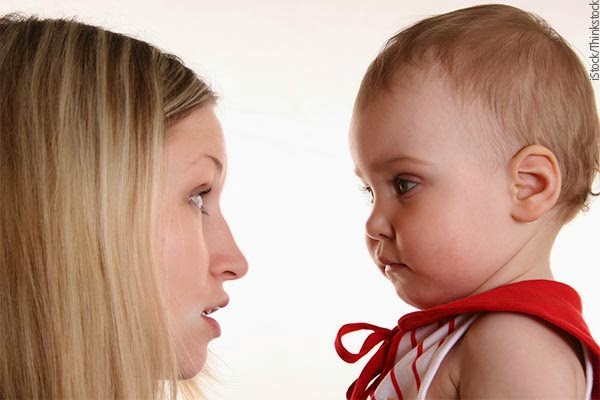What is the proper discipline for the child of 3, 4, or 5? Just as sirloin and sushi are not suitable foods for infant, so elaborate choices, appeals to reason, and threats of dire consequences are not appropriate techniques for guiding the behavior of the preschool child. If admonitions, punishments, and explanations worked, children and adults alike would not repeat the offending behaviors! There are many books and articles on discipline and guidance with children. And most of them are confusing. Here are a few general thoughts that might help in discerning which philosophy and subsequent strategies to choose.
Connect Before Correct
This is a phrase from the work of Jane Nelsen. Her book, Parenting by Connection, is an updated vesion of her most useful books on Positive Parenting, Positive Discipline, etc. The relationship with our children is the foundation from which they grow. Provide frequent positive acknowledgment and attention. It is not just saying, “What a good girl/boy,” but specifc information regarding their behavior, accomplishments, and attempts at mastery. Perhaps Ari can’t yet ride the bike, but you provide information on how he is doing better, how he is working hard to learn, etc. You tell your child it is helpful to put the dishes in the dishwasher and thank him/her. And you PLAY with your child, following her lead in the way she wants to play and create the game. Playing, reading, cuddling, laughing, singing … all this and more nurture warm, pleasureable bonds of love and affection that build a strong foundation upon which your child grows. And support greater cooperation … thus diminishing discipline challenges.
Rhythm
Rhythm and routine provide some guidance much like a guard rail on a bed, or on the freeway. They keep us moving along in a positive direction without much attention. Rhythm builds trust, certainty, and security. It soothes and relaxes children in a world where so much is new. It creates order out of the chaos of impressions and discoveries that await them each day.
Rhythm strengthens a child’s will, bringing it from a chaotic state into one which is more conscious and directed, i.e., after we play, we clean up; after our lunch, we lie down for a rest, etc. With a rhythmic order to the day, children are not anxious about what comes next. Less resistance occurs. Without a guard rail, anxiousness can arise. Children do not know what comes next, which affects their ability to freely learn, explore, and develop socially. Without the security of knowing what comes next that routine provides, the body produces stress hormones, keeping the child in an “alert” or “vigilant” state. Regular production of stress hormones negatively affects the developing body and brain.
Stressful times occur in all our lives. A strong rhythm and routine lend helpful support. Everyday occurrences like waking children or greeting them after school in the same way each day provide the stability and consistency children need, especially during times of turmoil or stress. A child who has a strong rhythm generally has less resistance to guidance, is more content, and is more likely to grow into a stronger, more vital adult.
Parental Authority
Today’s parents are often hesitant to stand as authorities to their children. Like the guard rail, parents need to stand with clarity regarding boundaries. One can be kind, clear, and firm while honoring a child’s individuality—a prominent value in our culture. The child needs to relax into the sense of security that this clarity provides, and go about the job of exploring and learning socially, emotionally, and intellectually.
Our reluctance to assume authority can be seen in unconscious speech habits, such as the insidious word, “Okay?” However, we tend to use this word when there is really no choice for the child. And when the child says “no,” frustration and anger often develop. How much better to state clearly, “Now it is time for dinner. You may put on your coat. Feet stay on the floor.”
Simple, clear statements work very well when responding to situations like why a child is not allowed to jump on the table. They also communicate certainty. “We eat on the table.” “The table is not strong enough for jumping and standing.” “You may climb on the pillows stacked in the living room or the climber outside.” Answering their “why” questions creatively and imaginatively rather than with intellectual detail is very effective and can be a very fun way to diminish resistance and upsets. Also, children who receive long, detailed explanations of why they should or should not do something learn to return, long detailed explanations of why they should or should not do something, creating more resistance. Children are masters of imitation, often imitating our speech long before cognitive understanding of such develops.
Choices
By offering children many choices—“What would you like for lunch?” “Where would you like to go today?”—we actually rob them of the certainty they need to experience in us. Or we seem to give them a choice, as in the insidious word, “Okay?,” when there is really no choice at all. Young ones are not yet equipped to make many of the choices we offer them, and it disturbs their free discovery of the world. AND children also need to feel some sense of power. Make choices appropriate to the age and situation and keep them to two options that will meet your own goal, i.e., “You can run with me to the car, or we can ride our ponies,” “We can ride our ponies to the car, or I can carry you,” “Would you like the green sweater or the yellow one?”
Children experience freedom during unstructured playtime, when they begin to make sense of their world and feel a sense of control in their own way and in their own time. The foundation of the free adult individual is laid in the free and imaginative play of young children. A child who does not play enough or who has too much structured time will feel and act frustrated. Today’s children exhibit more signs of stress than those of any other generation. Over-structured lives are one of the major causes.
Our Inner Selves
Lastly and most importantly, our own inner states affect our children. They know when we are tense, relaxed, happy, angry, or fearful. The more self-discipline and equilibrium we can achieve through taking care of our own needs for rest, nutrition, solitude, and relationship, the more relaxed and nurturing we are with our children. For children to be joyful, willing workers, we need to model daily tasks with joy and willingness. The capacity to perform daily, repetitive tasks of life and to provide for the demanding needs of our children requires us to meet our own needs.
We are not perfect. More important than being perfect is striving to do the right thing, to parent consciously. Children are forgiving and resilient because they understand we act out of love. We act out of love for our children, and they lead us down a path of inner change and growth.




